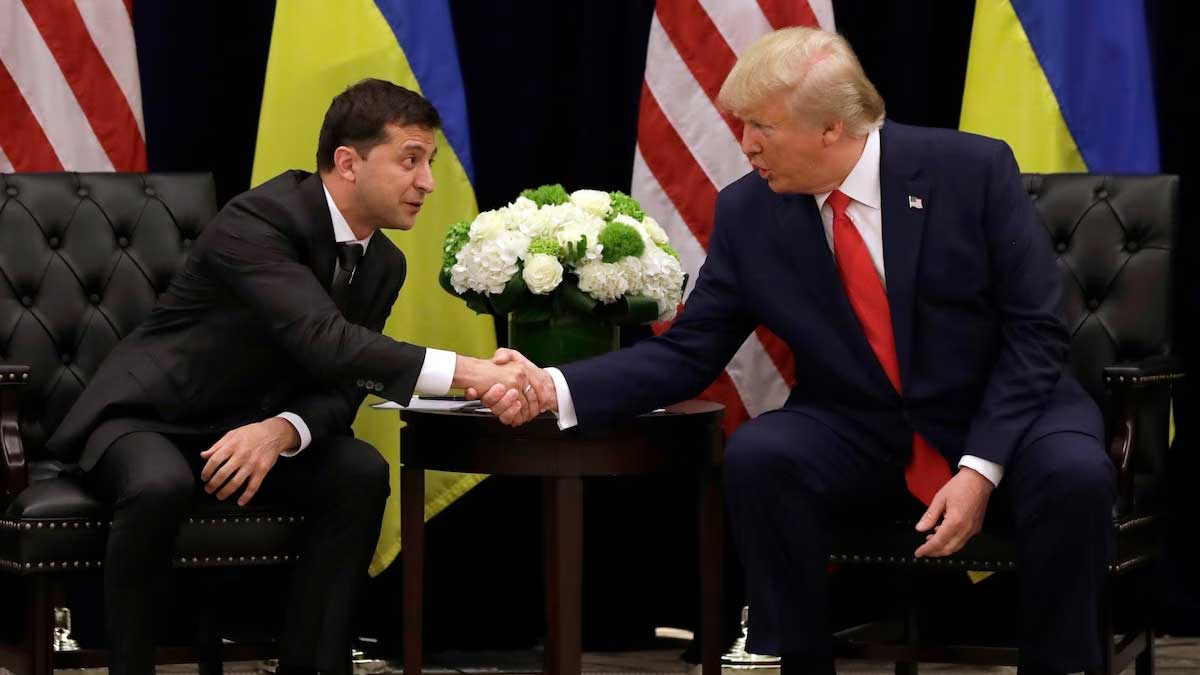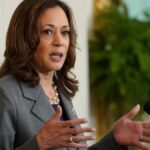- Home
- Billionaires
- Investing Newsletters
- 193CC 1000
- Article Layout 2
- Article Layout 3
- Article Layout 4
- Article Layout 5
- Article Layout 6
- Article Layout 7
- Article Layout 8
- Article Layout 9
- Article Layout 10
- Article Layout 11
- Article Layout 12
- Article Layout 13
- Article Layout 14
- Article Sidebar
- Post Format
- pages
- Archive Layouts
- Post Gallery
- Post Video Background
- Post Review
- Sponsored Post
- Leadership
- Business
- Money
- Small Business
- Innovation
- Shop
Recent Posts
Trump and Zelensky Face Off in High-Stakes Meeting

Former President Donald Trump announced at a Thursday press conference that he will meet with Ukrainian President Volodymyr Zelensky on Friday at Trump Tower in New York City. This meeting marks their first encounter since Trump left office and since the onset of the war in Ukraine, making it a highly anticipated event given the recent exchange of criticisms between the two leaders.
Scheduled for 9:45 a.m. EDT, Trump expressed optimism about his ability to facilitate a quick resolution between Zelensky and Russian President Vladimir Putin. However, he refrained from sharing specifics about what a potential compromise might entail. The backdrop of this meeting is a complicated relationship marked by a series of public spats throughout the week, suggesting a challenging environment as they come together.
In a recent interview with The New Yorker, Zelensky remarked, “Trump doesn’t really know how to stop the war even if he might think he knows,” underscoring the tension that exists between the two. When asked about this comment during the press conference, Trump responded humorously, suggesting he should “immediately cancel” the meeting. Despite the jibe, he reiterated his belief that Zelensky understands his capability to bring an end to the conflict.
The meeting comes shortly after Trump expressed skepticism about Ukraine’s prospects in the ongoing war. He referred to Zelensky as “the greatest salesman on Earth,” a reference to the substantial financial support the U.S. has provided to Ukraine, amounting to tens of billions of dollars since the beginning of the conflict in 2022. Trump emphasized that if he had been president, the war between Ukraine and Russia “never would have happened,” a claim he has made repeatedly when discussing the topic.
The strained relationship between Trump and Zelensky has drawn attention from various political circles. Republicans have criticized Zelensky for a recent visit to an artillery manufacturing plant in Scranton, Pennsylvania, characterizing it as a partisan campaign event aimed at bolstering Democratic candidates. This criticism further complicates Zelensky’s position in U.S. politics, particularly as he seeks continued support for Ukraine in its fight against Russian aggression.
Historically, the relationship between Trump and Zelensky has been tumultuous. It traces back to a controversial phone call in 2019, during which Trump urged Zelensky to investigate then-Democratic candidate Joe Biden, leading to a Democratic-led impeachment inquiry against Trump. Although he was impeached by the House, Trump was acquitted in a subsequent Senate trial, and the incident has colored perceptions of his relationship with Ukraine ever since.
As Trump prepares for the meeting, the lack of clarity regarding his plans to resolve the conflict is notable. The war has persisted for more than two years, resulting in significant human and economic costs on both sides. In contrast to Trump’s ambiguous proposals, Zelensky is actively engaging with other leaders to secure support for Ukraine. He met with President Joe Biden and Vice President Kamala Harris just a day prior, where Biden pledged an additional $8 billion in aid for Ukraine. This gesture emphasizes the Biden administration’s commitment to supporting Ukraine amid ongoing military challenges.
While Trump has claimed that the war could have been averted under his leadership, Zelensky’s comments suggest a differing perspective on Trump’s ability to influence the situation. The upcoming meeting at Trump Tower will be closely watched by political analysts and supporters of both leaders, as it may reveal more about their intentions and the future of U.S.-Ukraine relations.
As they prepare for the meeting, it remains uncertain how the dynamics between Trump and Zelensky will shift. The historical context of their relationship, compounded by recent criticisms, sets the stage for a complex dialogue. Both leaders will need to navigate their personal and political grievances to find common ground on an issue that has far-reaching implications for global stability.
In the larger context, Trump’s engagement with Zelensky could have significant ramifications for U.S. foreign policy. The relationship between the United States and Ukraine has been strained by domestic political issues, but the ongoing conflict has necessitated a united front against Russian aggression. Whether Trump can transcend his criticisms and work collaboratively with Zelensky will be a key aspect of their Friday meeting.
With the world watching, Trump and Zelensky will meet amid skepticism, criticism, and hope. The outcome of their discussions may impact not only the trajectory of the war but also the political landscapes in their respective countries. As both leaders prepare to engage, the stakes are undeniably high, highlighting the importance of dialogue in addressing one of the most pressing conflicts of our time.
Recent Posts
Categories
- 193cc Digital Assets2
- 5G1
- Aerospace & Defense46
- AI37
- Arts3
- Banking & Insurance11
- Big Data3
- Billionaires449
- Boats & Planes1
- Business328
- Careers13
- Cars & Bikes76
- CEO Network1
- CFO Network17
- CHRO Network1
- CIO Network1
- Cloud10
- CMO Network18
- Commercial Real Estate7
- Consultant1
- Consumer Tech180
- CxO1
- Cybersecurity68
- Dining1
- Diversity, Equity & Inclusion4
- Education7
- Energy8
- Enterprise Tech29
- Events11
- Fintech1
- Food & Drink2
- Franchises1
- Freelance1
- Future Of Work2
- Games141
- GIG1
- Healthcare78
- Hollywood & Entertainment186
- Houses1
- Innovation42
- Investing2
- Investing Newsletters4
- Leadership65
- Lifestyle11
- Manufacturing1
- Markets20
- Media193
- Mobile phone1
- Money13
- Personal Finance2
- Policy567
- Real Estate1
- Research6
- Retail1
- Retirement1
- Small Business1
- SportsMoney33
- Style & Beauty1
- Success Income1
- Taxes2
- Travel10
- Uncategorized8
- Vices1
- Watches & Jewelry2
- world's billionaires418
Related Articles
Trump Moves $4B Stake in Truth Social Parent, Stock Drops 6%
Donald Trump recently transferred his 57% stake in Trump Media & Technology...
By 193cc Agency CouncilDecember 20, 2024House Rejects Trump-Backed Funding Bill, Shutdown Looms
The U.S. House of Representatives rejected a new government funding bill on...
By 193cc Agency CouncilDecember 20, 2024Trump Named Time’s Person of the Year for Second Time
On Thursday, Time magazine honored Donald Trump as its “Person of the...
By 193cc Agency CouncilDecember 12, 2024Meta Donates $1 Million to Trump’s Inaugural Fund
Meta, the parent company of Facebook and Instagram, has confirmed a $1...
By 193cc Agency CouncilDecember 12, 2024















Leave a comment